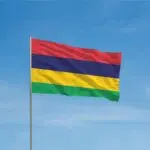World Day Against Cyber Censorship is observed on March 12. Cyber censorship blocks or limits access, communication, and access to certain information on the internet. Governments claim to do this for security purposes but it’s often a means of suppressing dissent by censoring and denying citizens their right to free speech, association, and mobilization. The internet is a powerful tool for reporting, awareness, and activism. It spreads information quickly and connects millions of people worldwide at the push of a button. We must protect freedom on the internet.
History of World Day Against Cyber Censorship
Censorship on the internet is a relatively recent phenomenon. The Communications Decency Act, passed by the U.S. government in 1996, made it illegal to post material on the internet that was deemed “patently offensive” or “indecent.” The majority of the Act was found to be unconstitutional, but Section 230 was not. Social media platforms, internet providers, and other intermediaries’ responsibility for their users’ access or sharing was reduced under Section 230. Two years later, the U.S. passed the Digital Millennium Copyright Act (D.M.C.A), criminalizing the dissemination of technology that bypasses copyright protection. Critics have long argued that the D.M.C.A. limits free expression and the fair use of copyright material. Another argument is that it restricts technological innovation and scientific research.
The Chinese Ministry of Public Security launched the ‘Golden Shield’ initiative in 1998, limiting citizens’ access to content the government deemed disruptive to national leadership. The Golden Shield evolved into the so-called ‘Great Firewall of China,’ considered the most exhaustive online censorship program. Specifications for the internet’s first Virtual Private Network were published online in 1999. Internet users can now access private networks across public networks. Initially used by companies to share personal services with satellite employees and offices, V.P.N.s soon became popular with individual users avoiding online censorship and geo-restriction.
By 2015, the U.S. Federal Communications Commission (F.C.C.) had approved a “net neutrality” order that assigned ISPs as “common carriers” and banned discriminatory throttling or blocking. The Net Neutrality order was challenged in 2016 and survived, but the F.C.C. repealed the order in 2017. In the same year, China began suppressing V.P.N. services, making them more challenging for activists, researchers, students, and business people who relied on them to surpass the Great Firewall. Cyber censorship has increased worldwide in recent years. It’s unlikely the debate around it will die down any time soon.
World Day Against Cyber Censorship timeline
The U.S. Navy develops onion routing, encrypting data packets, and creating onion-like layers of security.
The U.S. government passes the Digital Millennium Copyright Act.
During the Arab Spring in Egypt, the government shut down all internet access to suppress information on protests and human rights violations.
The Freedom House Organization reports that over a third of countries have received lower online freedom scores, meaning an increase in cyber censorship worldwide.
World Day Against Cyber Censorship FAQs
What is meant by cyber censorship?
Online censorship is the suppression or control of information, including rights to access and publish.
Who is affected by cyber censorship?
Internet censorship affects corporations, entrepreneurs, journalists, and activists.
How do I stop internet censorship?
You can avoid internet censorship by using V.P.N.s or proxies before going online.
How to Observe World Day Against Cyber Censorship
Use a V.P.N.
A virtual private network, or V.P.N., enhances your security and privacy by protecting your digital footprint. V.P.N.s are effective against surveillance in countries where the government censors the internet.
Share solutions
Discuss ways around internet censorship with others. Talk about V.P.N.s and Tor and how to help people protect themselves online. You can share these solutions on social media to target a wider audience and start a conversation on cyber censorship.
Verify and report
Verifying information before circulating it goes a long way toward stopping the spread of propaganda and disinformation. It only takes a few minutes of research. Report content that violates the guidelines of the forum where it gets posted.
5 Crucial Facts About Cyber Censorship
The scale of the problem
1.72 billion people are affected by internet censorship every day.
The strictest social media shutdowns
In Asia, 30 out of 46 countries have limited access to social media.
The friendliest social media continents
In Australia and Oceania, there are no recorded social media bans.
Increased restrictions on social media
One out of three countries reports systematic social media restrictions.
The worst environment for internet freedom
China is ranked as the worst country for internet freedom; authorities impose strict prison terms on independent reporters, activists, and online dissidents.
Why World Day Against Cyber Censorship is Important
Knowledge is power
The more corporations and governments know about us, the more power they have. Our data is used in many ways by third parties and can shape our opinions and behavior. It’s essential to protect that information. Privacy is a fundamental human right.
Censorship affects everyone
It's easy to disregard online censorship, yet it has an impact on all of us. It's only a matter of time after you let third parties pick what stuff you can access until they touch on something that directly impacts you. Today, an outspoken politician or activist might be silenced for raising difficult subjects. You won't be able to check social media for news updates tomorrow.
Freedom of expression
Restricting messages, websites, and opinions limits your right to expression and thought. People may fear criticizing or even discussing specific topics that are censored. Protecting freedom on the internet protects free speech, expression, and association.
World Day Against Cyber Censorship dates
| Year | Date | Day |
|---|---|---|
| 2025 | March 12 | Wednesday |
| 2026 | March 12 | Thursday |
| 2027 | March 12 | Friday |
| 2028 | March 12 | Sunday |
| 2029 | March 12 | Monday |














